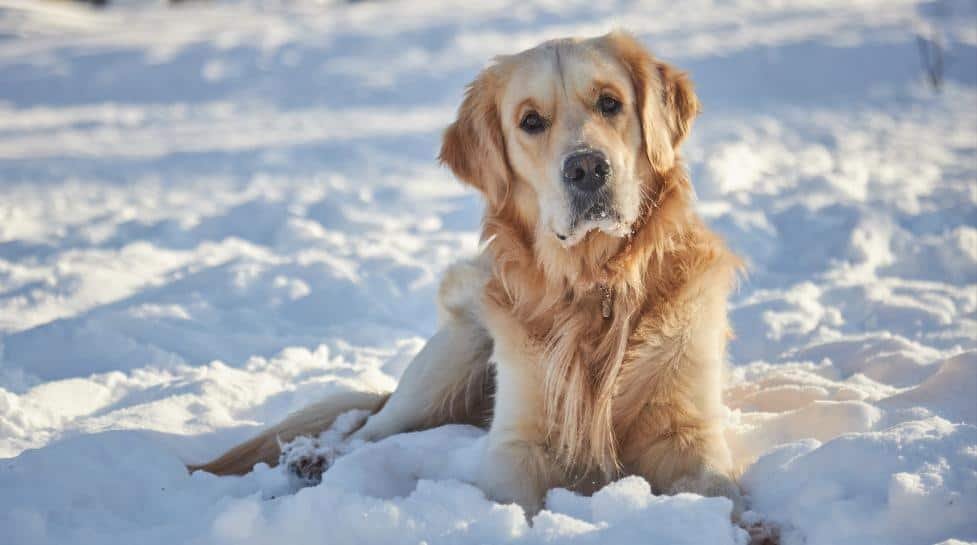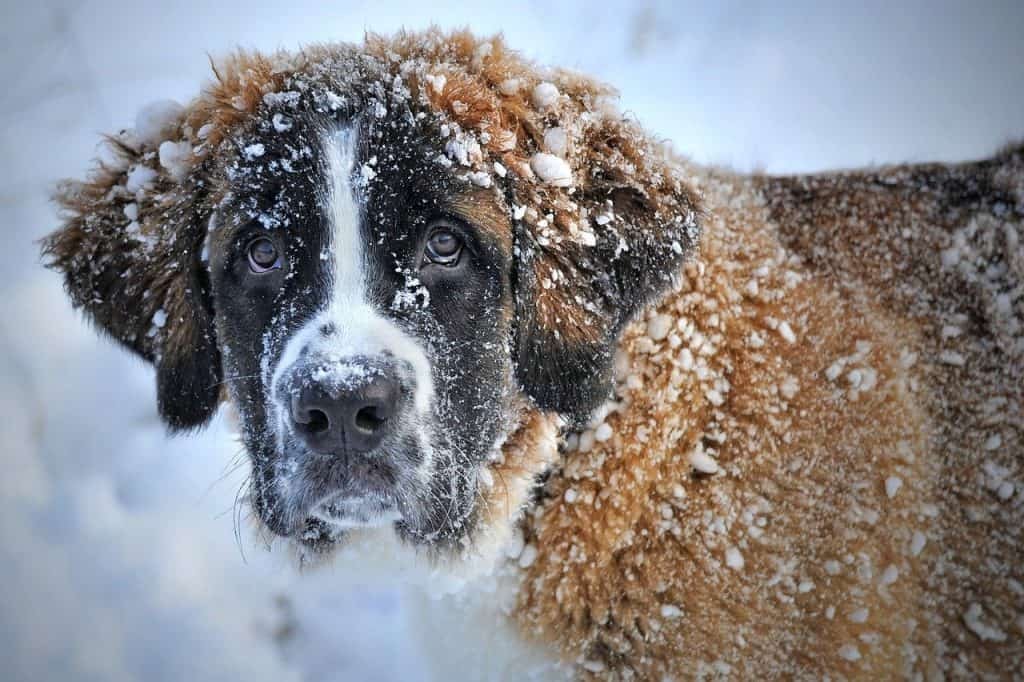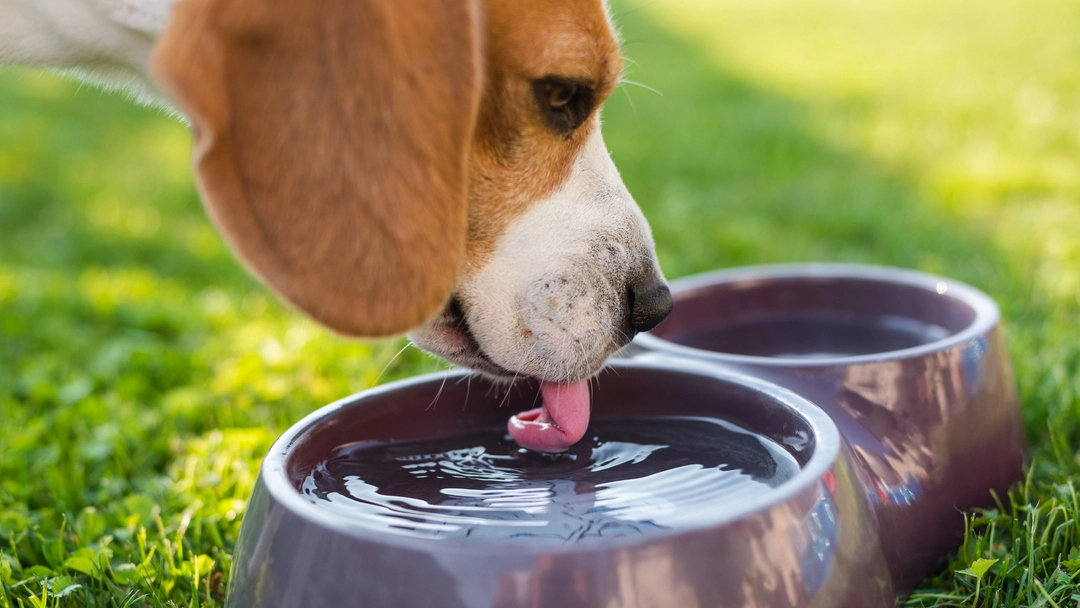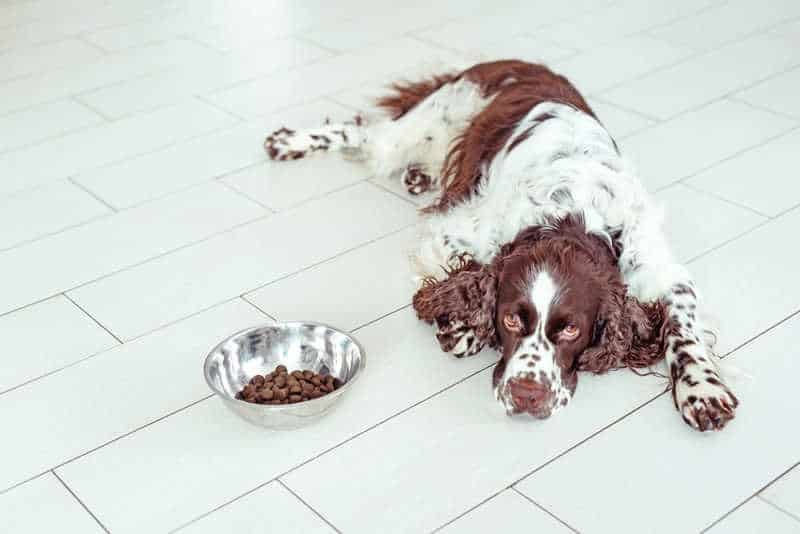If your dog is not eating, it can be a cause for concern. Not eating can be a sign of illness or discomfort, and it is important to address the issue as soon as possible. In this article, we will explore some possible reasons why your dog is not eating and discuss what you can do to help them get back to its normal appetite.
Why my dog is not eating in winter?

There could be several reasons your dog is not eating in the winter. Here are a few possible explanations:
- Your dog’s appetite may naturally decrease during the winter months due to lower levels of physical activity. Dogs tend to be more active in the warmer seasons, which can increase their appetite.
- Your dog’s food may not be as appealing in the colder weather. Try warming up their food or offering a variety of different types of food to see if that helps.
- Your dog may be experiencing an underlying health issue that is causing a decrease in appetite. If your dog has been consistently not eating or has other concerning symptoms, it is important to consult with a veterinarian.
- Your dog may be experiencing stress or anxiety, which can affect its appetite. Changes in routine, the addition of a new pet or family member, or even just the winter weather itself can all contribute to stress in dogs.
Overall, it is important to pay attention to your dog’s eating habits and address any changes or concerns with a veterinarian.
Does weather affect a dog’s diet?
Yes, weather can affect a dog’s diet. Cold weather can cause a dog’s metabolism to slow down, which may require a lower-calorie diet to help them maintain a healthy weight. Hot weather can increase the need for water and electrolytes in a dog’s diet. Additionally, certain weather conditions can cause a dog to become more active or less active, which can influence the amount and type of food they need.
Do I need to feed my dog more in the winter?

The amount of food your dog needs should be based on size, age, and activity level. If your dog is spending more time outdoors in the winter, it may need more food to compensate for this increased activity. However, it is always best to consult your veterinarian for advice on how much food your dog should eat.
Do dogs need more protein in the winter?
Most dogs do not require additional protein in the winter. However, if a dog is very active in cold weather or has a medical condition that requires extra protein, then it may be necessary to increase the protein content of their diet. Speak to your veterinarian to determine if other protein is needed for your dog.
10 Winter Feeding Tips for Dogs
- Make sure you provide plenty of fresh, clean water at all times.
- Feed high-quality, nutritionally balanced food that’s appropriate for your dog’s age, size, and activity level.
- Increase the amount of food you are feeding during the winter months.
- Provide an insulated shelter with plenty of bedding to help keep your dog warm.
- Provide extra fat, such as cooking oil, to help dogs maintain their body fat stores.
- Offer warm meals in the winter months instead of cold food.
- If your dog lives outdoors, provide extra blankets and sweaters for added warmth.
- Be sure to keep the area around the dog’s food and water clean to prevent bacteria growth.
- Feed your dog more often, but with smaller meals throughout the day.
- Consider adding a dietary supplement to your dog’s food to provide extra nutrients and vitamins.
How Cold Temperatures Affect the appetite of a dog

It is common for dogs to have a decreased appetite in cold weather. This can be due to several factors, such as decreased physical activity, lower metabolism, and naturally lower body weight in response to the cold. It is important to pay attention to your dog’s appetite and make sure they are getting enough to eat, especially in cold weather. If your dog is not eating enough, it can lead to weight loss and other health problems. If you are concerned about your dog’s appetite, it is always a good idea to consult with a veterinarian for advice.
How less Daylight Affects the appetite of dogs and weight
There is some evidence to suggest that less daylight can affect a dog’s appetite and weight. One study found that dogs fed a fixed amount of food during the winter months, when there is less daylight, gained more weight than dogs fed the same amount of food during the summer months. This may be because the shorter days of winter lead to a decrease in the production of the hormone leptin, which helps regulate appetite and metabolism.
Additionally, the reduced amount of daylight in the winter can also lead to a decrease in physical activity, which can contribute to weight gain in dogs. If your dog’s appetite or weight seems to be affected by the shorter days of winter, it may be helpful to pay attention to their diet and make sure they are getting enough exercise. It may also be a good idea to speak with your veterinarian for advice on how to manage your dog’s weight during the winter months.
Why is my dog not eating but drinking water?

There could be several reasons your dog is not eating but drinking water. Your dog may be experiencing an illness or discomfort that is causing a loss of appetite. Other causes of a decreased appetite in dogs include dental problems, changes in diet, and stress or anxiety. It’s also possible that your dog isn’t hungry.
If your dog has not been eating for more than a day or two and is showing other signs of illness, such as lethargy, vomiting, or diarrhea, it’s important to contact your veterinarian. They will be able to examine your dog and determine the cause of the loss of appetite and recommend the appropriate treatment.
In the meantime, you can try to entice your dog to eat by offering small amounts of a favorite food or high-quality, palatable commercial dog food. You may also want to try warming the food to release its aroma, or adding a small amount of a tasty, low-salt broth to the food.
How can I prevent my dog not eating in winter?
There are a few things you can try to encourage your dog to eat during the winter months:
- Make sure your dog has access to fresh, clean water at all times. Dehydration can lead to a decreased appetite.
- Serve your dog’s meals at room temperature or slightly warm. Cold food may not be as appealing to your dog.
- Add a small amount of warm water or low-sodium broth to your dog’s food to give it a more appealing aroma and texture.
- Try offering your dog a variety of different types of food, including wet and dry food, to see what they prefer.
- Consult with your veterinarian if you are concerned about your dog’s lack of appetite. They can help determine if there is an underlying medical issue that is causing your dog to lose their appetite.
- Make sure your dog is getting enough exercise. A daily walk or play session can help stimulate their appetite.
- Consider using a puzzle toy or food-dispensing toy to make mealtime more stimulating for your dog. This can help increase their interest in eating.
- Avoid giving your dog table scraps or other treats as a replacement for their regular meals. This can lead to poor nutrition and may decrease their appetite for regular food.


